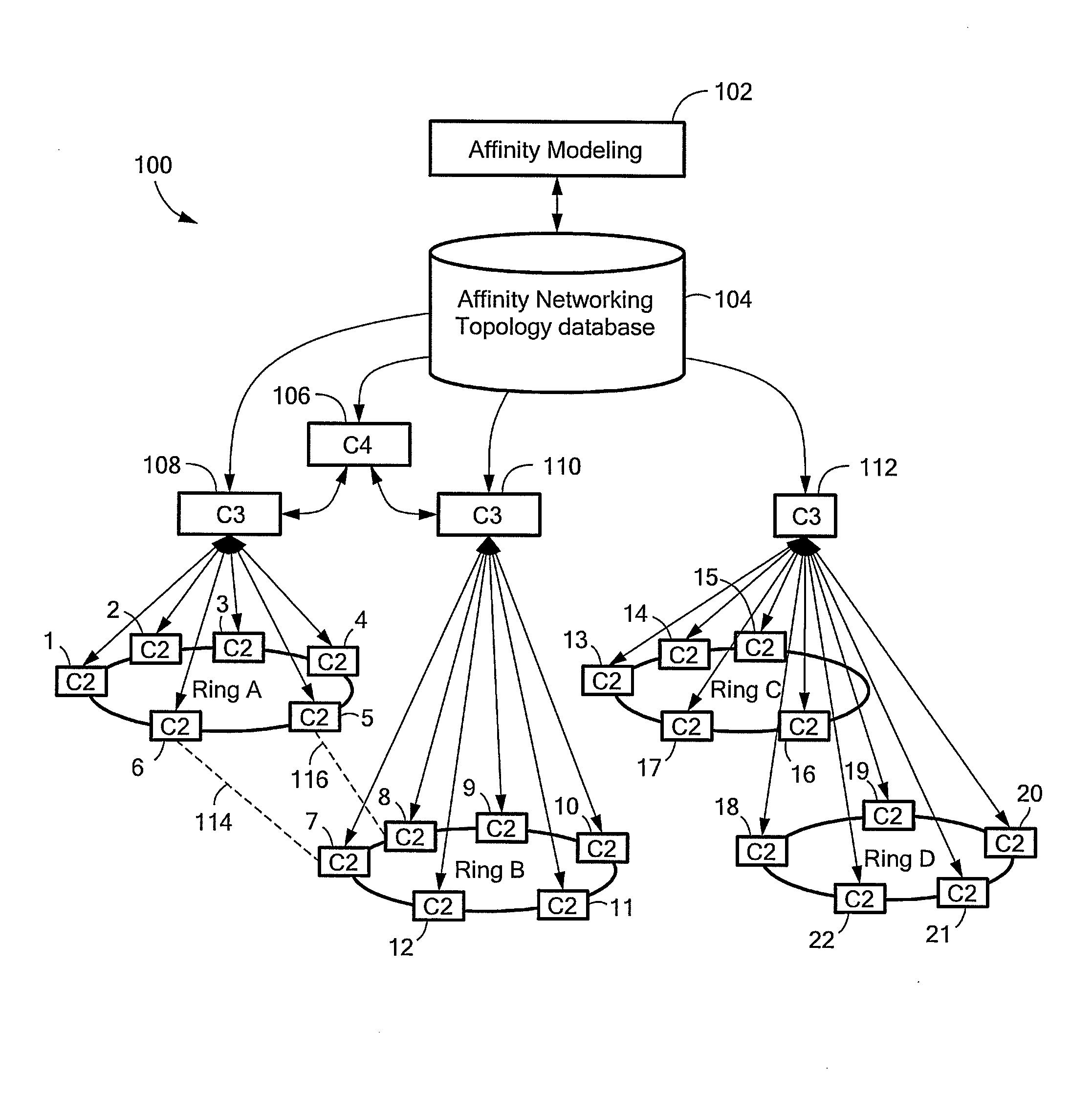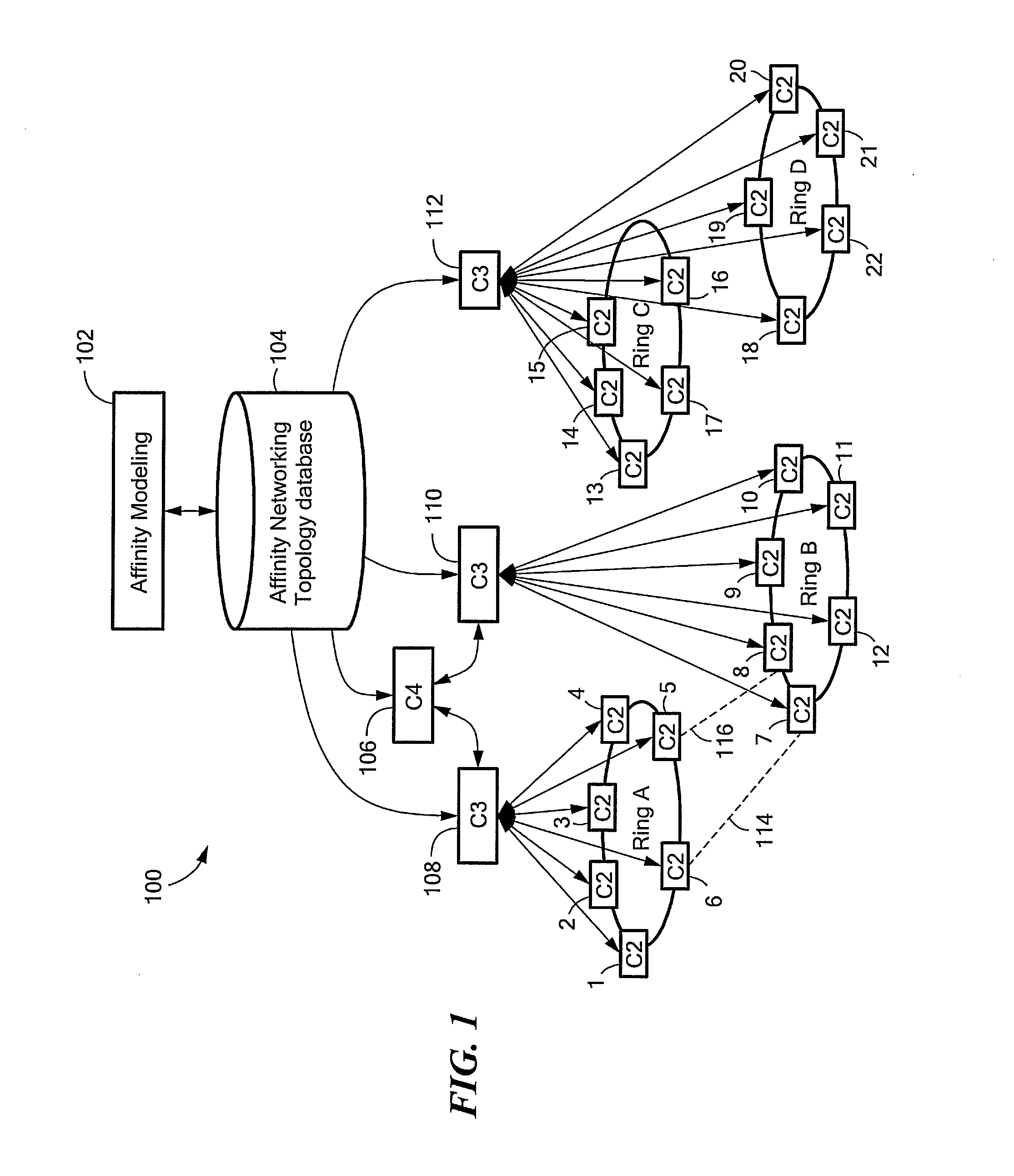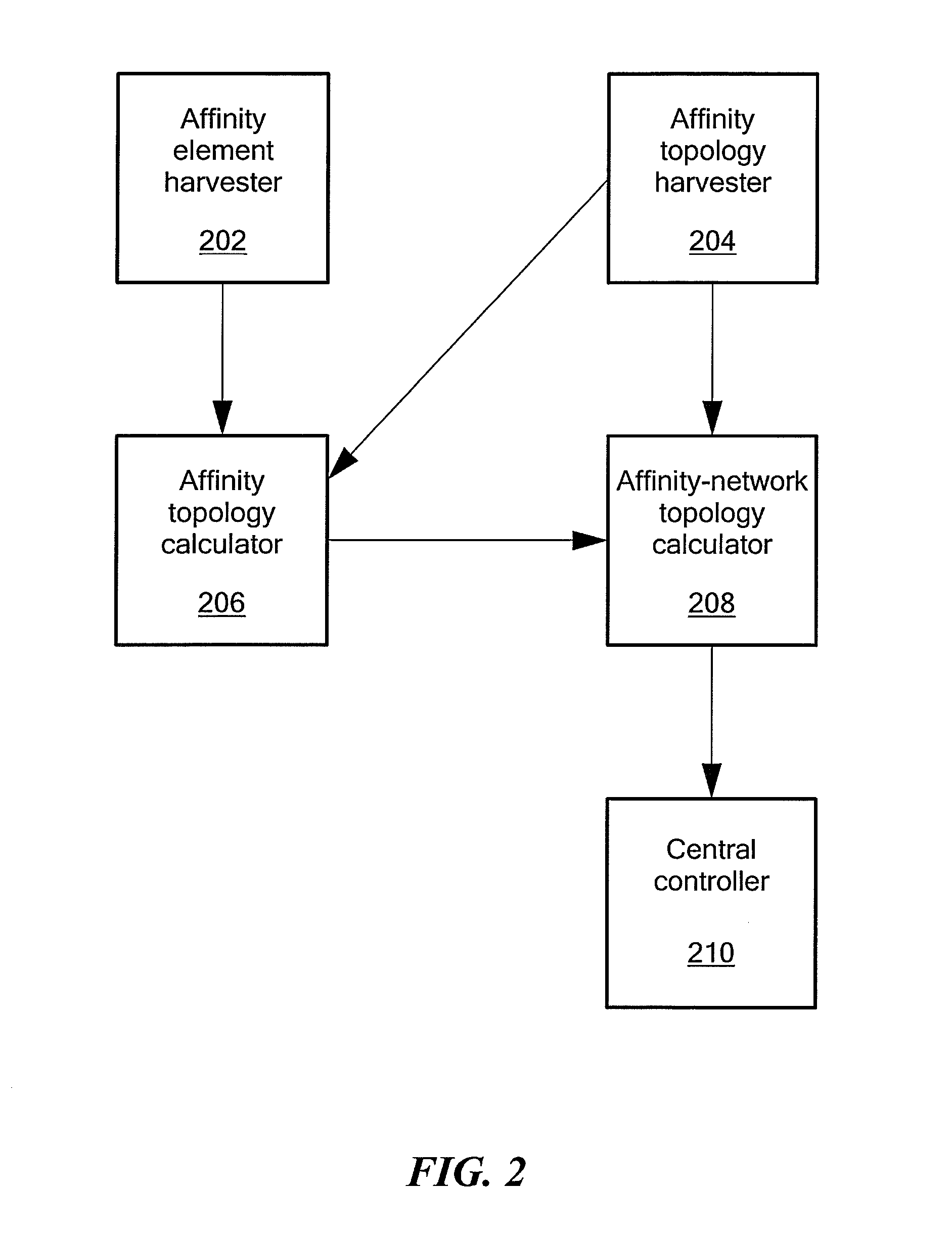Hierarchy of control in a data center network
a data center network and hierarchy technology, applied in the field of hierarchy of control in data center network architecture, can solve the problems of excessive delay in data communication between servers that are not co-located within the same rack, and inability to meet the requirements of physical interconnectivity, so as to reduce physical interconnectivity requirements, improve overall application program performance, and efficiently allocate bandwidth
- Summary
- Abstract
- Description
- Claims
- Application Information
AI Technical Summary
Benefits of technology
Problems solved by technology
Method used
Image
Examples
Embodiment Construction
[0039]The disclosures of U.S. patent application Ser. No. ______ filed ______, 2012 entitled DATA CENTER NETWORK ARCHITECTURE (attorney docket no. PLEX-004XX), U.S. patent application Ser. No. ______ filed ______, 2012 entitled AFFINITY MODELING IN A DATA CENTER NETWORK (attorney docket no. PLEX-005XX), U.S. patent application Ser. No. ______ filed ______, 2012 entitled CONTROL AND PROVISIONING IN A DATA CENTER NETWORK WITH AT LEAST ONE CENTRAL CONTROLLER (attorney docket no. PLEX-006XX), U.S. Provisional Patent Application No. 61 / 554,107 filed Nov. 1, 2011 entitled DATA CENTER NETWORK SWITCHING, U.S. patent application Ser. No. 13 / 528,501 filed Jun. 20, 2012 entitled OPTICAL ARCHITECTURE AND CHANNEL PLAN EMPLOYING MULTI-FIBER CONFIGURATIONS FOR DATA CENTER NETWORK SWITCHING, and U.S. patent application Ser. No. 13 / 528,211 filed Jun. 20, 2012 entitled OPTICAL JUNCTION NODES FOR USE IN DATA CENTER NETWORKS, are incorporated herein by reference in their entirety.
[0040]Data center netw...
PUM
 Login to View More
Login to View More Abstract
Description
Claims
Application Information
 Login to View More
Login to View More - R&D
- Intellectual Property
- Life Sciences
- Materials
- Tech Scout
- Unparalleled Data Quality
- Higher Quality Content
- 60% Fewer Hallucinations
Browse by: Latest US Patents, China's latest patents, Technical Efficacy Thesaurus, Application Domain, Technology Topic, Popular Technical Reports.
© 2025 PatSnap. All rights reserved.Legal|Privacy policy|Modern Slavery Act Transparency Statement|Sitemap|About US| Contact US: help@patsnap.com



